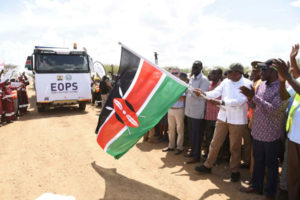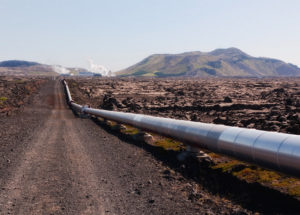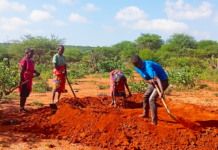Tullow Oil has stated that the scheme is meant to help test the reservoir behavior and the midstream process to inform the South Lokichar Full Field Development (FFD). The oil production levels under the EOPS are comparatively low. Nigeria currently has a crude oil production capacity of 2.5million barrels of oil per day.
This notwithstanding, the launch of the EOPS undoubtedly launches Kenya into the league of oil producing nations. The EOPS provides a much-needed litmus test of how the country will manage its oil resource once full commercial production begins. It is still early days but two incidents since the launch of the EOPs have already given some cause for concern.

The first incident is in relation to the environmental and social impact assessment (ESIA) and the second is in relation to the impasse and halting of the EOPS due to a community road blockade.
While the EOPS was launched on the 3rd of June, Tullow Oil through its environmental consultants, held a consultation meeting for the Environmental and Social Impact Assessment for the scheme on the 29th of June 2018. This in effect means that either the EOPS was launched without a full environmental and social impact assessment (ESIA); or what was launched by President Uhuru Kenyatta on the 3rd of June 2018 was not the Early Oil Pilot Scheme.
An environmental and social impact assessment is an evaluation of a project’s likely impacts. It is a critical process and a requirement that cannot be ignored. The process of carrying out the environmental and social impact assessment should come before the commencement of the project according to the Environmental Management and Coordination Act of 1999. If what was launched on the 3rd of June was indeed the EOPS, then it is likely that due process was not followed.
Tullow Oil on the other hand, despite widespread media coverage of the launch and the flagging off of trucks, does not seem to have clarified if the EOPS has kicked off; and if it has- why it has kicked off before completion of the ESIA as required by law. What likelihood is there that the EOPS would be stopped if serious potential negative impacts are discovered during the completion of the ESIA?

The responsibility to clear the air on this confusion does not only lie with the project proponent, in this case, Tullow Oil. The Government of Kenya, and in this case, specifically the National Environmental Management Agency- has a responsibility to provide clarity on whether the EOPS was launched after the completion of the ESIA as required by law.
On 27th June, barely a month after the EOPS launch, communities along the Lokichar-Kapenguria road affected a road blockade that resulted in a suspension of the EOPS by close to 7 weeks. The blockade was ostensibly a result of community concerns and frustrations on rising insecurity due to armed banditry.
However, during the community and government stand-off, it later emerged that the impasse was not only related to insecurity but also included other community concerns related to access to jobs and other benefits from the oil industry.
The government is on record stating that the EOPS disruptions had resulted in losses amounting to Kshs. 400million. Beyond the losses, the impasse shows the government and Tullow Oil may not have sufficiently consulted the Turkana community and addressed all their concerns before the launch of the EOPS.
Addressing the issue took close to two months to resolve is further evidence that this was not anticipated and a rapid response to address concerns was not there. Underlying issues related to revenue sharing, jobs, local content and transparency, and accountability were clearly not sufficiently addressed at the launch of the EOPS.

The government has since gazetted the establishment of the Turkana Grievance Management Committee. This structure is expected to deal with any arising community concerns after EOPS kicks off again. Without full disclosure of oil contracts, the EOPS agreement and full transparency, accountability and community participation on all aspects related to Turkana oil development, the threat of further community disruptions remains.
Where communities do not feel adequately informed and consulted- they are likely to use the only leverage they have, and in this case, it is the disruption of the EOPS. It is trite to note that oil resources belong to the citizenry and are held only in trust by the government. Citizens, therefore, deserve open communication and full accountability throughout every step towards commercial oil production.
The EOPS remains an important yardstick for how the government and the project proponent manage Kenya’s precious oil resources when commercial production starts. All effort must be put towards building citizen confidence and trust in the governance of the resource.
Lack of clarity, obfuscation, and miscommunication only provide fertile ground for the manifestation of the oft-cited ‘resource curse’. The challenge to the Government of Kenya and Tullow is to ensure transparency and provide regular updates on the EOPS, disclose the EOPS agreement and follow the letter and spirit of the law- even as it pertains to social performance.














